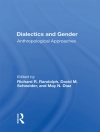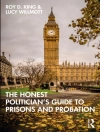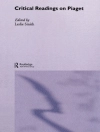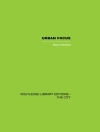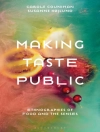The collector is a pseudo sub-species of human who endeavors to amass items for building wealth, in the pursuit of a hobby or, in extreme cases, as a part of pathological hoarding behavior. The extreme collector expands what could be considered normal boundaries in terms of using financial resources, encroachment of communal space in a shared home environment, or in the way they go about locating new items to acquire. The hoarder takes collecting to the next, even more extreme level, where the array or items gathered becomes arguably and uncontrollably massive enough to bring the hoarder much criticism from others, usually in the psychological sense. In comparison to the modern collector of things, the hunter-gatherer communities – primarily from primitive times, but even today in remote parts of the world – followed their collecting behavior solely for their survival since agriculture and farming had not yet been invented. We refer to these people as foragers. The increasingly rare communities that follow a foraging lifestyle actually exist in the present day, albeit in isolated areas of the world with decreasing land mass; they collect what they need, experiencing increased difficulty in protecting their coveted anonymity. Even when they cross paths with members of modern society, they shun interaction and may even threaten warfare. Modern foraging communities have no immunity to modern diseases, making contact with modern humans threatening to their health and survival. The mindset of today’s collector can be compared to that of the primitive foragers as a way of drawing a link between their behavior and impulses to those of modern humans, suggesting a possible genetic link. In doing so, the psychodynamic aspects of the collector in modern times can be better understood through the anthropological lens. With this connection, therapists can more deeply understand and appreciate the thought process of the modern collector and maybe even that of the hoarder. Families of collectors and hoarders and even the folks collecting and hoarding themselves can evaluate their lifestyle, habits, impulses and drives more deeply, affording them a practical and humanistic view of themselves. The perspectives of the author, who is a self-confessed collector and those of other collectors as well as one hoarder provide a balanced analysis of the interiority of the subject covered by this book. A walkthrough of various types of collections is included along with an illustrative of the thesis. Part of the author’s collection of mineral spheres is included in an appendix to provide the reader with a first-hand view of one type of collection. What is hopefully clear to the reader is that the mindset of the collector should not be quickly judged, but carefully evaluated and the collector or hoarder is encouraged to keep an open mind, embracing a new conceptual understanding of the actions they take in pursuit of their passion or obsession. The topic of mental illness is covered to allow for the potential for judgment of the behavior to be understood for potential treatment protocols. Caution, however, is encouraged with regard to treatment as not every person considered obsessed with their passion is willing to acknowledge their excessive conduct or even would agree their behavior reaches an obsessive level. Accordingly, treatment as we may think of the word as necessarily leading to reform or reduction in impact may not be possible even with greater insight. Still, we must find a balance between respecting someone’s chosen lifestyle and suggesting a balanced approach to life that considers not only the person, but those around them as well.
Eric Anton Kreuter
Collector Mentality [PDF ebook]
Modernization of the Hunter-Gatherer
Collector Mentality [PDF ebook]
Modernization of the Hunter-Gatherer
Dieses Ebook kaufen – und ein weitere GRATIS erhalten!
Format PDF ● Seiten 313 ● ISBN 9781536126006 ● Herausgeber Eric Anton Kreuter ● Verlag Nova Science Publishers ● Erscheinungsjahr 2017 ● herunterladbar 3 mal ● Währung EUR ● ID 7217378 ● Kopierschutz Adobe DRM
erfordert DRM-fähige Lesetechnologie


